All Stories
- Physics
There’s math behind this maddening golf mishap
Math and physics explain the anguish of a golf ball that zings around the rim of the hole instead of falling in.
-
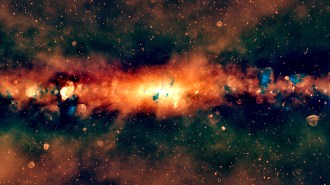 Astronomy
AstronomySee the largest, most detailed radio image of the Milky Way yet
Supernova remnants, stellar nurseries and more populate the new edge-on view of the Milky Way as seen from Earth’s southern hemisphere.
-
 Artificial Intelligence
Artificial IntelligenceAs teens in crisis turn to AI chatbots, simulated chats highlight risks
From blaming the victim to replying "I have no interest in your life" to suicidal thoughts, AI chatbots can respond unethically when used for therapy.
-
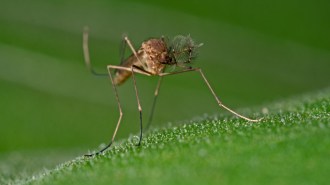 Animals
AnimalsMosquitoes infiltrated Iceland. Will they survive the winter?
Mosquitoes have reached Iceland, a place once thought too harsh for them to survive. Climate change may play a role in this shift.
-
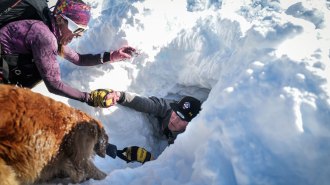 Health & Medicine
Health & MedicineVolunteers agreed to be buried face-down in the snow, for science
A safety device helped maintain a buried person’s oxygen levels for up to 35 minutes, tests show, buying crucial time for an avalanche rescue.
- Chemistry
A new AI technique may aid violent crime forensics
An AI tool trained on chemical signatures from corpse-eating insects may help determine time and place of death for victims of violent crimes.
By Meghan Rosen -
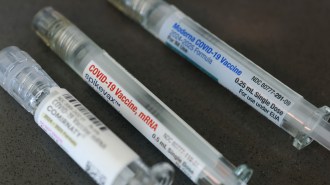 Health & Medicine
Health & MedicineCancer treatments may get a boost from mRNA COVID vaccines
Cancer patients who got an mRNA COVID vaccine within a few months of their immunotherapy lived longer than those who did not, health records show.
By Meghan Rosen -
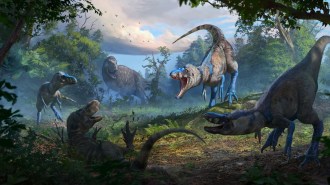 Paleontology
PaleontologyNanotyrannus was not a teenaged T. rex
A new Nanotyrannus fossil suggests the diminutive dino lived alongside T. rex in the late Cretaceous Period.
-
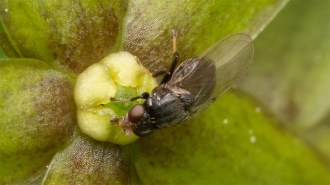 Plants
PlantsThis flower smells like injured ants — and flies can’t resist it
A type of Japanese dogbane releases a scent identical to wounded ants’ distress signal, drawing in scavenging flies that unwittingly pollinate it.
-
 Astronomy
AstronomySome planets might home brew their own water
Tests on olivine hint that water-rich exoplanets could generate H2O internally, possibly explaining ocean worlds and even some of Earth’s early water.
-
 Space
SpaceBlack holes are encircled by thin rings of light. This physicist wants to see one
Theoretical physicist Alex Lupsasca is pushing for a space telescope to glimpse the thin ring of light that is thought to surround every black hole.
- Animals
Deep Antarctic waters hold geometric communities of fish nests
Scientists found thousands of patterned fish nests in Antarctica’s Weddell Sea, boosting calls for marine protected areas.
By Carly Kay